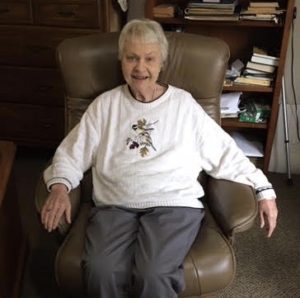Haldis I. Kaasa – 1931-2022
Hadis Inger (Solem) Kaasa was born on May 19, 1931, in Aure, Norway. She died peacefully at the age of 90 on Wednesday, January 5, 2022, at Aase Haugen Senior Services Assisted Living where she had resided since 2017.
Haldis is survived by her son Kai who resides in Garnavillo, Iowa, and many relatives in Norway. She was preceded in death by her parents, a sister and brother, and her husband Harris (1926-1983), a 1950 graduate and professor of religion at Luther College from 1953-55 and 1961-1983.
Haldis and Harris arrived in Decorah and at Luther College in 1953. Haldis studied Art and Scandinavian Studies, receiving a BA degree in 1981. She and Harris were long- time and active members of Good Shepherd Lutheran Church.
Private family graveside services will be held at a later date in the Brush Point Cemetery in Harlontown, Iowa. A full obituary is available at the Fjelstul Funeral Home website: https://www.fjelstul.com/obituary/haldis-kaasa
Blessed be the memory of Haldis Inger Kaasa




